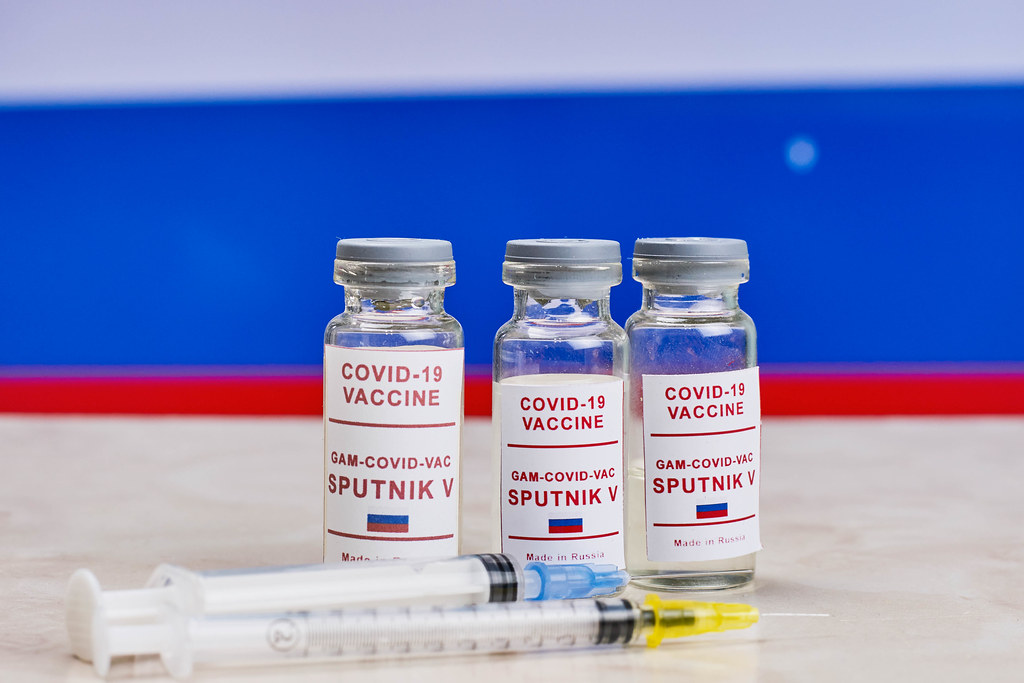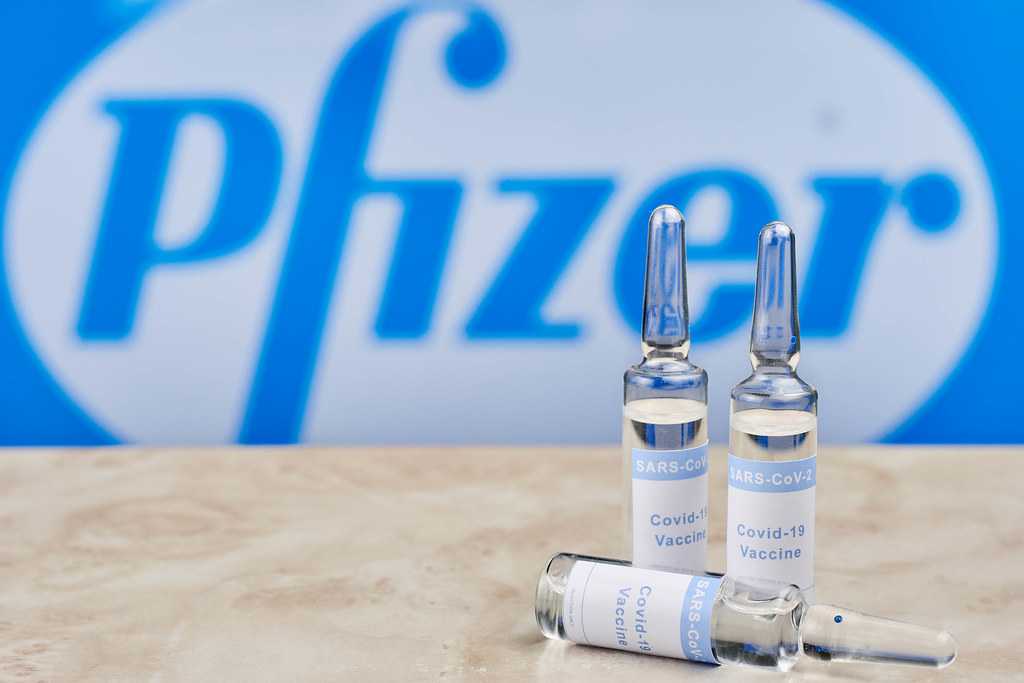Difference Between Sputnik V and Pfizer
With the vaccine war heating up, more vaccine candidates are racing against time to develop Covid-19 vaccine. Over a hundred vaccine candidates are in the process of developing a vaccine, and a few of them have either been approved for emergency use or pending approval for mass distribution.
We take a look at the two rivals that have demonstrated promising results based on the preliminary findings of the clinical trials of the vaccine – Russia’s flagship Sputnik V and the Pfizer-BioNTech vaccine.

What is Sputnik V?
The Russian Covid-19 vaccine, whimsically named Sputnik V, was the world’s first officially registered vaccine to be used against the Covid-19 pandemic which has managed to brought the most powerful nations to their knees.
Developed by the Gamaleya Research Institute of Epidemiology and Microbiology and registered by the Ministry of Health of Russia, Sputnik V is a Recombinant COVID-19 vaccine that includes the type 26 (rAd26-S) and the type 5 (rAd5-S) Adenovirus vectors. On Sept. 2020, a Lancet peer review journal, based on the analysis of phase 1 and phase 2 clinical trials of the vaccine, confirmed that there were no adverse implications of the vaccine and ascertain a stable immune response in almost all the participants. The organization has indicated that a vaccine dose will roughly cost $10.

What is Pfizer?
The Pfizer vaccine is developed by the American pharmaceutical company Pfizer in partnership with the German biotechnology company BioNTech. The vaccine is based on messenger RNA (mRNA) technology, a cutting-edge technology of vaccine development that involves passing the genetic instructions on to make SARS-CoV-2 spike protein.
The idea is to trigger an immune response against the deadly Covid-19 virus every time the virus tries to enter the body. The vaccine has claimed to have demonstrated a 90% efficacy rate in preventing the virus in participants with no evidence of prior infection, based on the preliminary results.
The vaccine proved to be 95% effective against the virus after two doses in people without any history of infection. On Dec. 11, 2020, the FDA has approved Pfizer vaccine for emergency use for stopping the Covid-19 pandemic.
Difference between Sputnik V and Pfizer
Type of Sputnik V and Pfizer
– Sputnik V was the first registered vaccine against the Covid-19 pandemic but was overshadowed by the European and US vaccine candidates. Sputnik V is Recombinant COVID-19 vaccine that includes two Adenovirus vectors – the type 26 (rAd26-S) and the type 5 (rAd5-S). The Adenovirus-based vaccines are easier to engineer and are considered extremely safe to administer. The vaccine uses a weakened virus which is totally harmless and when injected, the body starts creating antibodies and thus stimulates an immune response.
The Pfizer-BioNTech vaccine is the mRNA based vaccine, a cutting edge technology used in vaccine development. The vaccine uses engineered RNA which are basically proteins that write instructions for certain tasks when enters the nucleus.
There is this mRNA genome, which is inside of the virus and when the virus binds with the cell, the cell also internalizes the mRNA that comes with the cell’s own nucleus, and this mRNA is then translated into proteins. This protein will be immunogenic and will cause you to make antibodies against the spike proteins that come with the virus, protecting you from Covid-19.
Efficacy of Sputnik V and Pfizer
– Based on the preliminary reports of the clinical trials of over 20,000 participants, the Russia’s flagship double-shot Sputnik V Covid-19 vaccine has showed impressive results with a 91.6% efficacy against the symptomatic coronavirus.
The Lancer peer review journal confirmed that the Russian vaccine is more than 91% effective against protecting people from the virus and that there are no serious adverse affects of the vaccine. The vaccine based on the analysis of over 2,000 participants aged 60 and above has showed 91.8% efficacy, which is very promising.
The German-backed Pfizer Covid-19 vaccine has at least a 90% efficacy rate meaning the vaccine was 90% effective at fighting the coronavirus pandemic among those without any signs of prior infection, reports based on final stage of clinical trials confirmed. The vaccine proved to be 95% effective against the virus after two doses in people without any history of infection.
Dose of Sputnik V and Pfizer
– Pfizer vaccine shots are administered as intramuscular injections as a series of two doses, 0.3 ml each. The first dose is for recognizing the virus and getting your immune system ready for the virus, and the second dose enhances your immune response. The vaccines need to be administered in two doses set three weeks apart. So, if the first dose is on Day 1, then the second dose should be given on Day 22.
The Russian Sputnik V is also a two-dose vaccine developed by the Gamaleya Research Institute of Epidemiology and Microbiology. It uses the same adenovirus as Johnson & Johnson for the first dose (rAd26-S) and a totally distinct second dose with a distinct adenovirus (rAd5-S). The reports suggest Sputnik V is likely to offer immunity against the virus for at least two years.
Sputnik V vs. Pfizer: Comparison Chart

Summary of Sputnik V vs. Pfizer
The development and widespread inoculation of a safe and effective Covid-19 vaccine is paramount in establishing a community-level protection and stopping the pandemic. The urgent need for mass vaccination has generated multiple vaccine candidates in a short span of time that are entering or have already passed the various stages of clinical trials.
Pfizer vaccine and Sputnik V are two such vaccine candidates that have managed to compress the vaccine development timeline from what has typically been 1-2 decades to less than a year or so. But, which vaccine candidate is more effective and safe, and offer long term immunity, is still a question. There are several reasons to be confident in both the vaccine candidates, but only time will tell which one will prevail in the ongoing vaccine race.
- Difference Between Caucus and Primary - June 18, 2024
- Difference Between PPO and POS - May 30, 2024
- Difference Between RFID and NFC - May 28, 2024
Search DifferenceBetween.net :
Leave a Response
References :
[0]Foley, Katherine Ellen. “The Metric That Will Determine the Real Winner of the Covid-19 Vaccine Race.” Quartz, Quartz Media Inc., https://qz.com/1935017/moderna-vs-pfizer-who-will-win-the-covid-19-vaccine-race/. Accessed 3 Feb. 2021
[1]Terry, Mark. “UPDATED Comparing COVID-19 Vaccines: Timelines, Types and Prices.” BioSpace, BioSpace.com, https://www.biospace.com/article/comparing-covid-19-vaccines-pfizer-biontech-moderna-astrazeneca-oxford-j-and-j-russia-s-sputnik-v/. Accessed 3 Feb. 2021
[2]Fazeli, Sam. “Would You Take Russia's Covid-19 Vaccine?.” Bloomberg Opinion, Bloomberg L.P., https://www.bloomberg.com/opinion/articles/2021-01-08/how-does-russia-s-covid-19-vaccine-compare-with-pfizer-moderna. Accessed 3 Feb. 2021
[3]Loh, Tim. “Pfizer, Sputnik V, or Moderna — people are ‘brand conscious’ when choosing Covid vaccine.” The Print, Printline Media Pvt. Ltd., https://theprint.in/health/pfizer-sputnik-v-or-moderna-people-are-brand-conscious-when-choosing-covid-vaccine/595831/. Accessed 3 Feb. 2021
[4]Image credit: https://live.staticflickr.com/65535/50714715547_f8553552f9_b.jpg
[5]Image credit: https://live.staticflickr.com/65535/50717083006_e6651de54a_b.jpg
